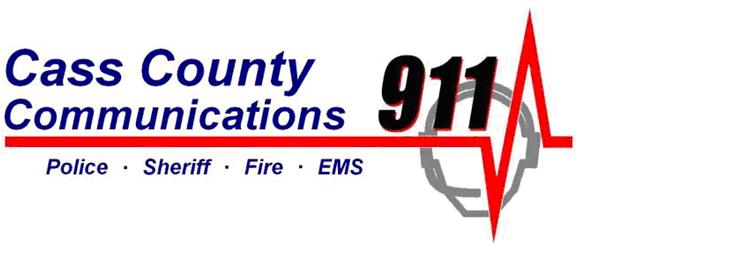Cass County 911 Center Urges Education for 9-1-1
April 9th, 2012 by Ric Hanson
Everyone knows that 9-1-1 is a universal number that should be called in the event of an emergency…or do they? 9-1-1 Centers all over the United States have encountered hurdles when educating the public when it comes to the 9-1-1 and its uses. That’s why the Cass County 911 Center is urging all educational organizations, parents, and caregivers to assist with the “9-1-1 Education Challenge” during the month of April as part of National 9-1-1 Education Month.
That’s why the Cass County 911 Center is urging all educational organizations, parents, and caregivers to assist with the “9-1-1 Education Challenge” during the month of April as part of National 9-1-1 Education Month.
The goal is to educate as many people on 9-1-1, its uses, its challenges, and the future capabilities during the month. Cass County 911 Director Rob Koppert said “With all the advances in technology, 9-1-1 has become much more complex. What started out as a simple concept has grown into an amazing infrastructure that needs crucial attention.
Koppert says nationwide, 9-1-1 has not kept up with advances, especially in wireless technology and we are just now getting the infrastructure in place to handle 9-1-1 calls in the form of text messages and to be able to receive pictures and videos on 9-1-1.”
He says “In 2011, the Cass County 911 Center received approximately 6,000 9-1-1 calls, of which 80-percent were from wireless phones. This is on top of the 26,000-plus administrative calls answered by the Cass County 911 Center. Koppert says children and adults should have a good understanding of 9-1-1 and how it works in their area.
Some general guidelines for 9-1-1 are:
- 9-1-1 is for police, fire and medical emergencies. If the nature of the call is an immediate threat to life or property, call 9-1-1. In non-emergencies, call the Cass County 911 Center at 712-243-2204.
- Know the location of the incident. Providing an accurate address is critically important especially when making a wireless 9-1-1 call. Not all wireless calls provide accurate location information, especially if the caller is indoors.
- If you call 9-1-1, don’t hang up. 9-1-1 operators are going to assume that something has gone very wrong and will either call you back, or send a police car if the location is known.
- Don’t call 9-1-1 for jokes or prank calls. These calls waste resources and ties up the lines at the 9-1-1 center. Not to mention that making harassing or prank 9-1-1 calls is a crime in Iowa.
- When you call 9-1-1, pay attention to the questions that you are being asked.
- Stay on the line with the 9-1-1 call taker and answer all questions. The more information they have, the better they are able to help you.
- Stay calm and speak clearly. If you are crying or yelling, it can be very hard for the 9-1-1 Operator to understand you.
In addition to April being National 9-1-1 Education Month, the week of April 8th through 14th in National Public Safety Telecommunicators Week in the United States.





